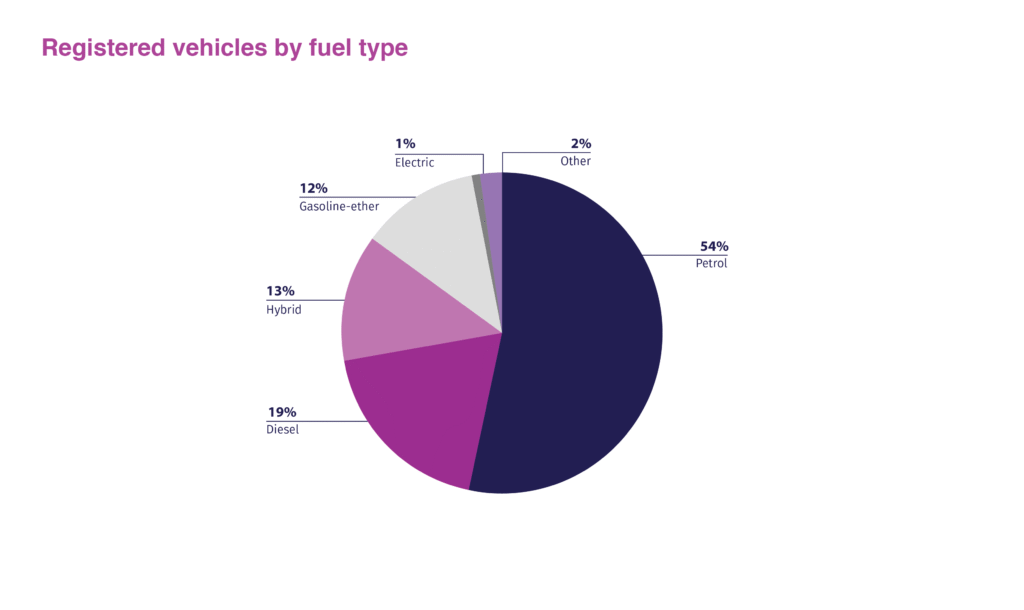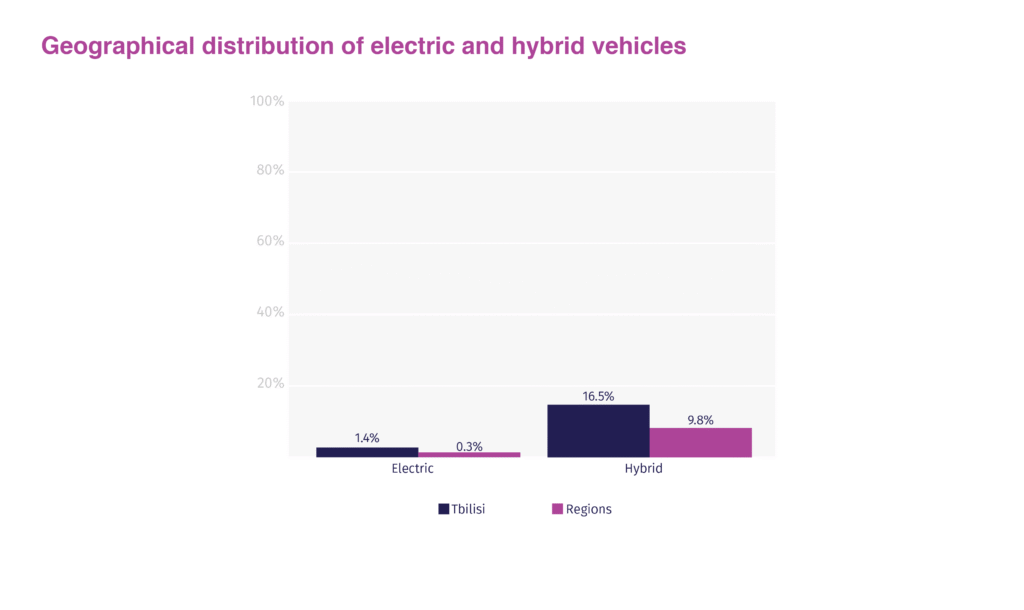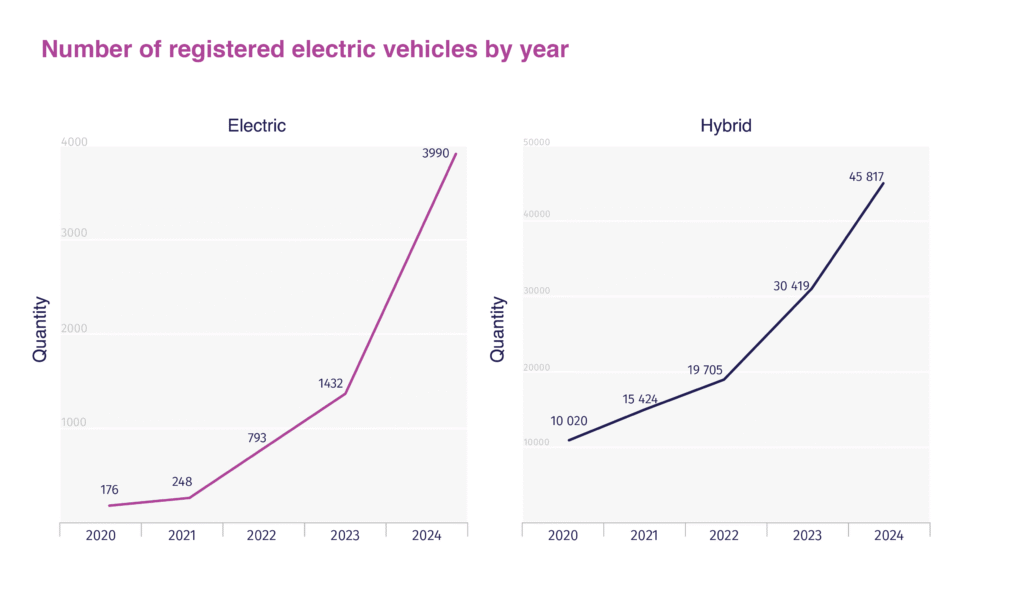Electric vehicles in Georgia – What is the path toward a green future

Electric vehicles in Georgia – What is the path toward a green future
Ekaterine Jikidze, ACTR
Research Analyst
Global trends
Electric vehicles (EVs) are rapidly gaining popularity worldwide and are already securing a strong position in the global market. According to the IEA’s global report, in 2024, more than 20% of newly sold cars were electric vehicles, and total sales exceeded 17 million – an increase of over 25% compared to the previous year.
It is worth noting that China continues to hold the leading position in the market, where nearly every second car sold is now electric. In 2024, electric vehicle sales in the country exceeded 11 million units. In Europe, 3.4 million electric vehicles were purchased in 2024, accounting for about one-fifth of all new car sales across European countries. In the United States, EV sales reached 1.6 million units in 2024, with policies continuing to support and stimulate the growth of the electric vehicle market.
Particularly noteworthy is the momentum in markets outside of Europe, China, and the U.S.: in these regions, electric vehicle sales grew by nearly 40% in 2024, reaching 1.3 million units – slowly approaching the sales figures of the United States.
What are the figures in Georgia?
Against the backdrop of global trends, ACT Research (ACTR) became interested in the data from Georgia. While the country is still at an early stage in the development of electric vehicles, official statistics show a growing trend in EV registrations, indicating the market’s potential for growth.
According to data from the Ministry of Internal Affairs, the number of electric vehicles in Georgia increased each year between 2020 and 2025. However, their share among the total registered vehicles during this period (up to 1,053,000) is only 0.78%, which equals 8,224 electric vehicles. The market is still dominated by traditional fuel-powered cars – those with gasoline and diesel engines. At the same time, the share of registered hybrid vehicles over the past 5 years has reached 12.78%, indicating growing public interest in environmentally friendly transportation.

Tbilisi leads in eco-friendly transportation
From a geographical perspective, electric vehicles in Georgia are mostly concentrated in the capital – 79% of all EVs are registered in Tbilisi. However, despite this high concentration, they still make up only 1.42% of all vehicles registered in the city. In comparison, this figure is significantly lower in the rest of the country – just 0.29%.
This notable difference is likely due to several factors: on one hand, higher population density and income levels in Tbilisi, and on the other hand, better-developed charging infrastructure and greater sensitivity to environmental issues.
A similar pattern is seen with hybrid vehicles: 56% of all hybrids in the country are registered in Tbilisi. Still, hybrids account for only 9.78% of all vehicles registered in the capital. These figures clearly show that interest in low-emission transportation is particularly concentrated in Tbilisi.

Clear growth trend
Although the share of electric vehicles remains small, their presence in Georgia is clearly on the rise. In 2020, only 176 electric vehicles were registered, but by 2024 this number had increased to 3,990 – a 20-fold increase. As of the first quarter of 2025, a total of 1,585 electric vehicles have been registered. If the growth rate continues, the number of registered EVs by the end of 2025 may even surpass the previous year’s figure. The number of hybrid engine vehicles registered in the country is also growing year by year. This consistent increase indicates a rising interest among Georgian consumers in eco-friendly vehicles.
 Georgia is still at an early stage in the spread of electric vehicles, but the direction is clear. The growing number of electric and hybrid vehicle registrations-especially in Tbilisi-lays the foundation for wider adoption. Infrastructure development, various incentives, and increased awareness will help accelerate this transition and make clean transportation more accessible to the population.
Georgia is still at an early stage in the spread of electric vehicles, but the direction is clear. The growing number of electric and hybrid vehicle registrations-especially in Tbilisi-lays the foundation for wider adoption. Infrastructure development, various incentives, and increased awareness will help accelerate this transition and make clean transportation more accessible to the population.
For Georgia to catch up with international trends, joint efforts from the private sector, the government, and consumers are necessary. Electric vehicles are not only an ecological choice but also a crucial step toward sustainable development.
Sources used:
- The data for Georgia is based on statistics published by the Ministry of Internal Affairs regarding privately owned vehicles registered with “active” status from 2020 up to March 31, 2025.
https://www.iea.org/reports/global-ev-outlook-2025/trends-in-electric-car-markets-2